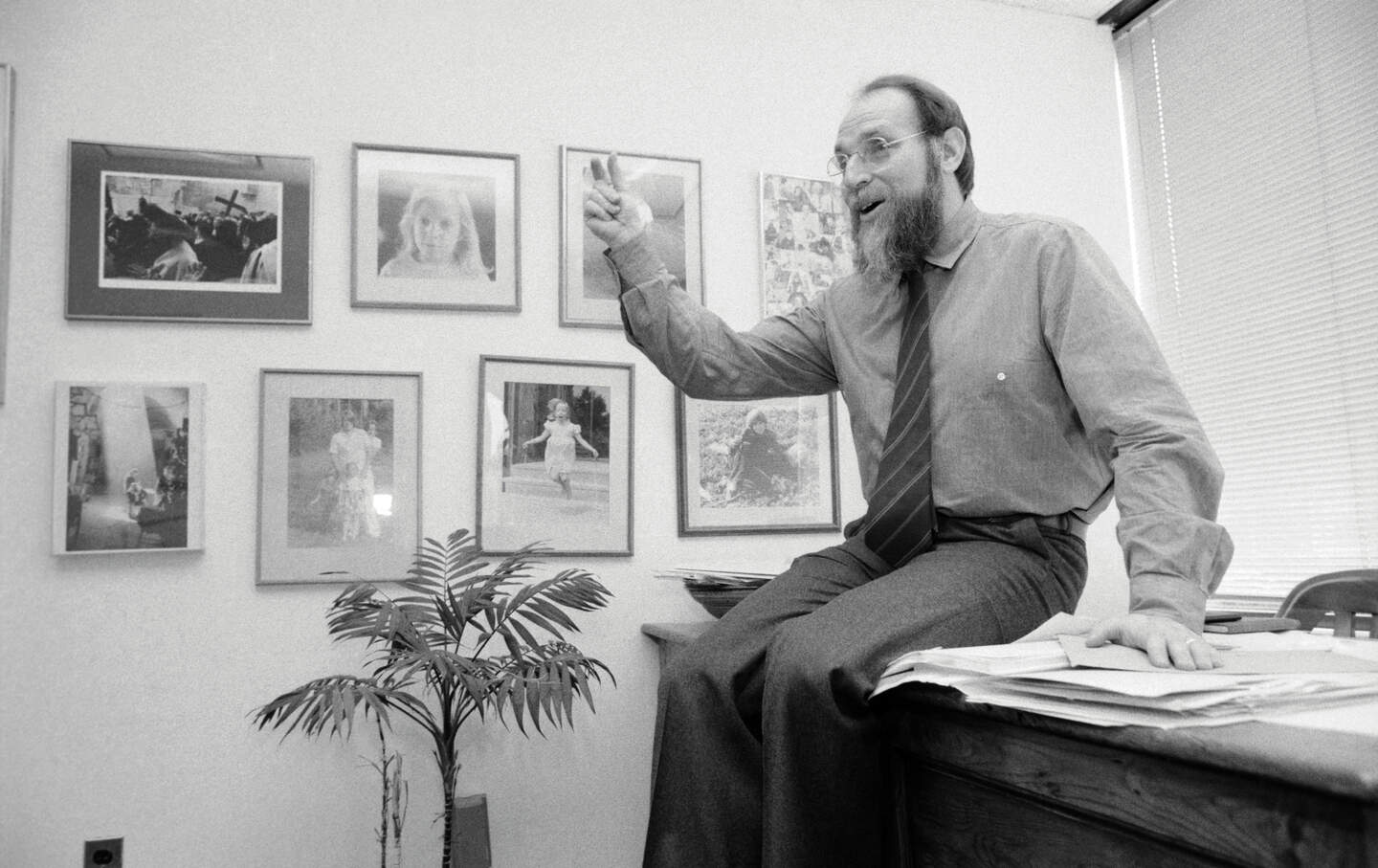Marty Peretz and the Neoliberal Reckoning
On this episode of The Time of Monsters, David Klion on the legacy of the former New Republic publisher.

Here's where to find podcasts from The Nation. Political talk without the boring parts, featuring the writers, activists and artists who shape the news, from a progressive perspective.
On this episode of The Time of Monsters, David Klion on the legacy of the former New Republic publisher.
Advertising Inquiries: https://redcircle.com/brands
Privacy & Opt-Out: https://redcircle.com/privacy

Martin Peretz in his magazine office.
(Bettmann / Getty Images)Marty Peretz has led a large life, one he recounts with aplomb in his autobiography, The Controversialist. As publisher and editor-in-chief of The New Republic from 1974 to 2012, he transformed the venerable liberal magazine into an organ of neoliberalism, with a politics that emphasized deregulation of the economy, scaling back the welfare state, militant Zionism, and an aggressive foreign policy (leading the magazine to support the disastrous Iraq War in 2003). Coupled with the magazine, Peretz used his second wife’s vast fortune to create an political network that extended to many nodes of elite power: Harvard, Wall Street and even the White House (Vice President Al Gore was Peretz’s protégé).
I wrote about Peretz’s life and also the large-scale damage done by his politics in a recent review of his memoir. Frequent guest of the show David Klion, who wrote about the memoir for The Baffler, joined the The Time of Monsters for a spirited discussion of a memorable life. Also relevant to this discussion is David’s review of Liberties, a magazine founded by Peretz’s longtime crony Leon Wieseltier.
